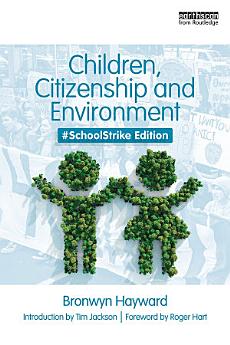Children, Citizenship and Environment: #SchoolStrike Edition, Edition 2
આ ઇ-પુસ્તક વિશે
The #SchoolStrike edition of Children Citizenship and Environment includes all new contributions by youth, indigenous and disability activists, researchers and educators: Raven Cretney, Mehedi Hasan, Sylvia Nissen, Jocelyn Papprill, Kate Prendergast, Kera Sherwood O’ Regan, Mia Sutherland, Amanda Thomas, Sara Tolbert, Sarah Thomson, Josiah Tualamali'i, and Amelia Woods.
As controversial, yet ultimately hopeful, as it was when first published, Bronwyn Hayward develops her ‘SEEDS’ model of ‘strong ecological citizenship’ for a school strike generation. The SEEDS of citizenship education encourage students to develop skills for; Social agency, Environmental education, Embedded justice, Decentred deliberation and Self-transcendence. This approach to citizenship supports young citizens’ democratic imagination and develops their ‘handprint’ for social justice.
This ground-breaking book will be of interest to a wide audience, in particular teachers and professionals who work in Environmental Citizenship Education, as well as students and community activists with an interest in environmental change, democracy and intergenerational justice.
લેખક વિશે
Bronwyn Hayward is a Professor of Political Science and International Relations at the University of Canterbury, New Zealand. She was a lead author on the Intergovernmental Panel on Climate Change (IPCC) report on 1.5 degrees of global warming and is a coordinating lead author for the IPCC on cities and infrastructure. Bronwyn also leads CYCLES: the Children and Youth in Cities, Lifestyles Evaluation and Sustainability project for UK ESRC-funded Centre for Sustainable Prosperity at the University of Surrey. She has been a visiting fellow with the Tyndall Centre for Climate Change at the University of East Anglia. In addition to her academic work, Bronwyn has worked in children’s media and national parks and environmental policy. She has collaborated with youth researchers in Brazil, India, Japan, New Zealand, Norway, South Africa, the UK and USA.




